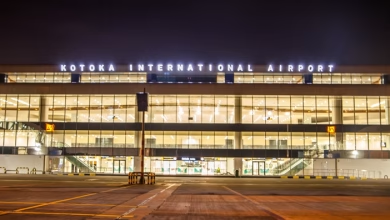Reconsider Strike Action, Small-Scale Miners Appeal to Organised Labour

- GNASSM opposes Organised Labour's strike
- Strike may harm Ghana's fragile economy
- Bipartisan approach needed to tackle galamsey
- Government action required to prevent environmental degradation
The Ghana National Association of Small-Scale Miners (GNASSM) has made a passionate plea to Organised Labour to reconsider its planned nationwide strike, scheduled to begin on October 10. This strike is in response to the government’s failure to address the issue of galamsey, or illegal mining, which has plagued the country for years.
At a press conference held in Kumasi on October 3, GNASSM expressed concerns that the strike could exacerbate Ghana’s already fragile economy. The association urged stakeholders to explore alternative solutions to address the galamsey menace, rather than resorting to strike actions that could have severe economic implications.
GNASSM emphasized that tackling galamsey requires a collaborative, bipartisan approach, bringing together stakeholders from across the political spectrum. The association’s leadership noted that politicking with the issue will only lead to destruction, highlighting the critical importance of preserving water bodies.
“We will plead with Organised Labour to reconsider their decision to embark on a nationwide strike,” GNASSM stated, “and instead lead in the discussion and finding lasting and sustainable solutions to illegal mining that will not be political”.
The Presidency has extended an invitation to Organised Labour to discuss the impending strike, demonstrating a willingness to engage in dialogue. GNASSM has also called on the government to deploy personnel to water bodies to curb ongoing pollution and reconsider permitting entities to work in forest reserves.
The association stressed that if companies are not working in accordance with their permit requirements, those permits should be revoked. This stance underscores GNASSM’s commitment to responsible mining practices.
As the umbrella organization for registered small-scale miners in Ghana, GNASSM plays a vital role in promoting sustainable mining practices. The association has pledged to collaborate with stakeholders to minimize the negative impacts of mining.
In recent years, GNASSM has worked closely with the Ministry of Lands and Natural Resources to strengthen the mining sector. The association has also engaged with academic institutions, such as the University of Mines and Technology, to promote knowledge sharing and capacity building.
The planned strike has sparked concerns among stakeholders, with many acknowledging the need for a nuanced approach to addressing galamsey. By reconsidering the strike, Organised Labour can help pave the way for constructive dialogue and sustainable solutions.
GNASSM’s call to action emphasizes the importance of collective responsibility in addressing Ghana’s environmental and economic challenges.






